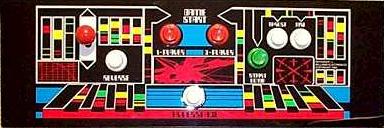What the heck do I know?
Feel free to look me up here.
Two years ago I was introduced to the world of "gamification," which is using game mechanics to encourage user behavior. This is not a new technique (think Airline Miles), but with the infusion of Big Data into the picture, the ability to track and modify user experiences on a millisecond by millisecond basis became possible.

With the experience I have had in making video games that must react to users' every whim and desire, this seemed like the perfect opportunity to get into this new "field."
There are many ways to slice this onion, but one of the best ways to say it is that users that are experiencing gamified systems are more engaged and interested in what they are doing. In my opinion, it's because the people that are doing the gamification are being FORCED to listen to their users. Just like a good video game.
But gamification is NOT a video game. As these blogs go forward, you'll see what I'm talking about.
Let's discuss the highlights that Google brought me in my Google Alerts (which I do believe in) in this week's Gamification Examination!
Disclaimer: there are a lot of opinions thrown around in here. Consider yourself warned as well as invited to participate in a discussion through the comments below.
This page opens with "When Travel and Transport decided last year to develop a gamification program for corporate customers, it was making a conscious effort to focus on the carrot rather than the stick approach to travel management."
The general thinking is that Travel is one of the types of businesses that use gamification in an extrinsic manner. This is not necessarily anything to do with what you would call current-day gamification. Let's look at this article closer...
Since this is for TRAVEL MANAGEMENT and not consumers, there is a chance they can break out of the extrinsic motivator mold. Oops! They actually lead with "Half of those customers will offer their travelers points that can be collected and redeemed for merchandise and travel rewards." Yep extrinsic. They say this is "different" because they are using it for a new part of the industry. I'm not convinced. Let's keep looking...
"[G]iving public recognition to travelers who do the most to hold down the firm’s expenses, can do wonders." Umm... not sure this is really anything new.
They also mention leaderboards. All right, that's something basic and needed. That's good.
"What’s new is the science of using motivators to drive employees toward given objectives by creating relevance and allowing them to connect on their own terms." Science of motivators? I think this is really just a way to align the users' motivations with those of the business and using conditioning. There's simply nothing SOCIAL about it.
Their final words: "Just do something fun and easy and see how it goes." Yep. They certainly seem to be doing that. Prizes for performance. That's not good. I predict this program will work for as long as someone can make a budget for prizes.
It's an article about a magazine with articles. Interesting angle, but you guessed it - it's a press release. Let's open it up!
Game On! Learning was called on to lead the charge. ' “Due to the ground-breaking nature of the issue, it was important to work closely with their editorial staff to provide the best possible information about learning gamification to their readers.” '
All right. This is going to be GROUND BREAKING!
"A highlight of the issue is the gamified Pop Quiz." Umm... looking at it - what you have here is a classic case of extrinsic rewards. Not really ground-breaking. But they did do it online through a QR code. Kind of interesting, but really?
No consideration of SOCIAL, but they do make the case for the business impact.
Yep, another press release, but they are so big, it's worth a dissection.
The NUMBER one thing on their feature list: "Social Rewards: a new native feature to recognize users for their interactions with a brand on social networks, driving better retention and advocacy."
This is exactly what the other company offerings I've been going on about for weeks are MISSING. It is the true engine that makes gamifcation work, so that it's not just a "flash in the pan" extrinsic reward platform.
Here's another SOCIAL-driven feature: "Platform Event Subscriptions. Notify external systems every time users earn rewards on Badgeville-powered sites and applications. For example, when a user completes a new mission, you could automatically trigger an e-mail to be sent from your E-mail Service Provider (ESP)."
This is some POWERFUL stuff. People WANT to be recognized socially for their performance and it is really meaningful when the others understand the effort that these rewards took to pull off. Ever told someone that you reached level 100 in Pac Man? What if someone told you they got a PERFECT score in Pac Man, where they collected every dot, ghost, and fruit for every level in the entire game? That would blow your mind because you have CONTEXT. And that's part of the value of social rewards.
Intrinsic motivation is far more powerful than extrinsic motivation. C'mon, people! You need to WAKE UP AND SMELL THE MOTIVATION!
Signing off for today (11/07/13)
That's it for now. I fully expect you to share your thoughts here. Tell me I'm off base. I'll listen and adapt. I'm not "right," because no one is on matters like these, because this is a growing field, and I don't have all the information you do. More than anything, a discussion will help us ALL learn more.




.jpg)




.jpg)












